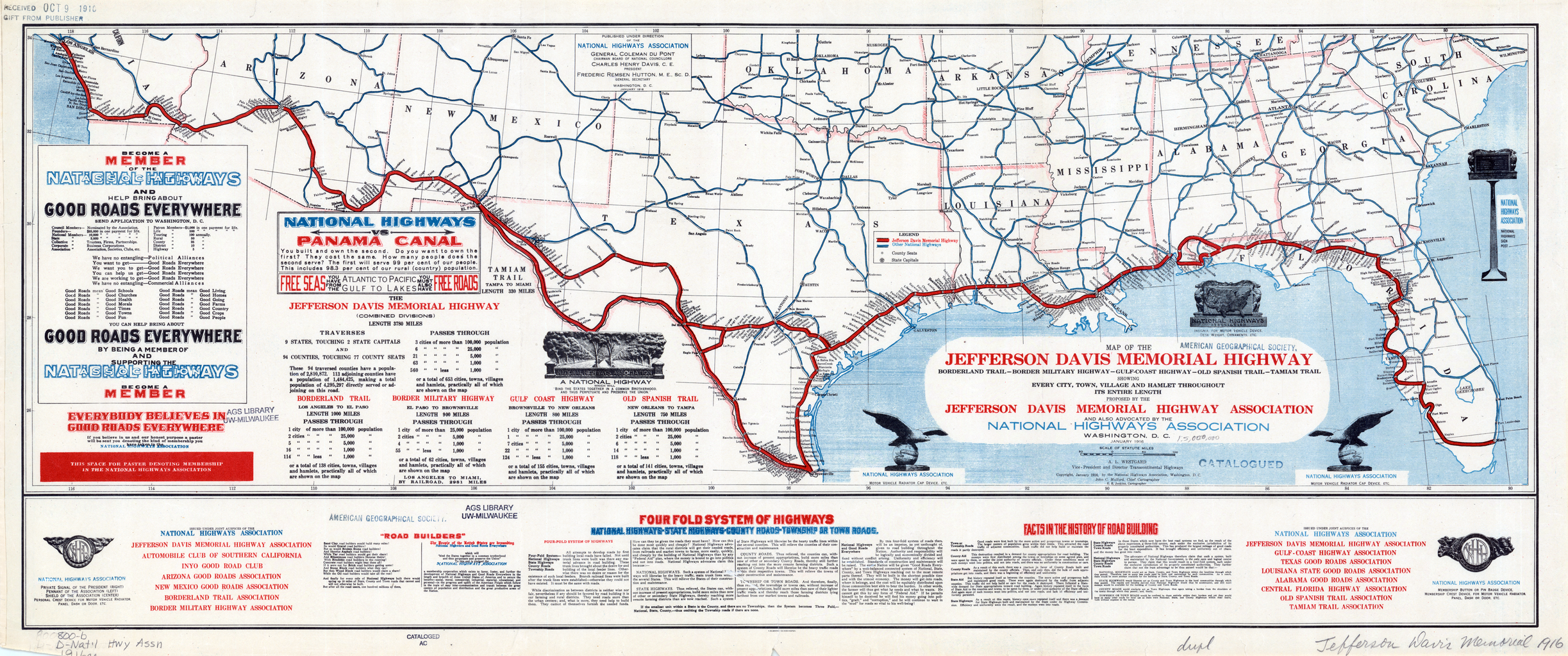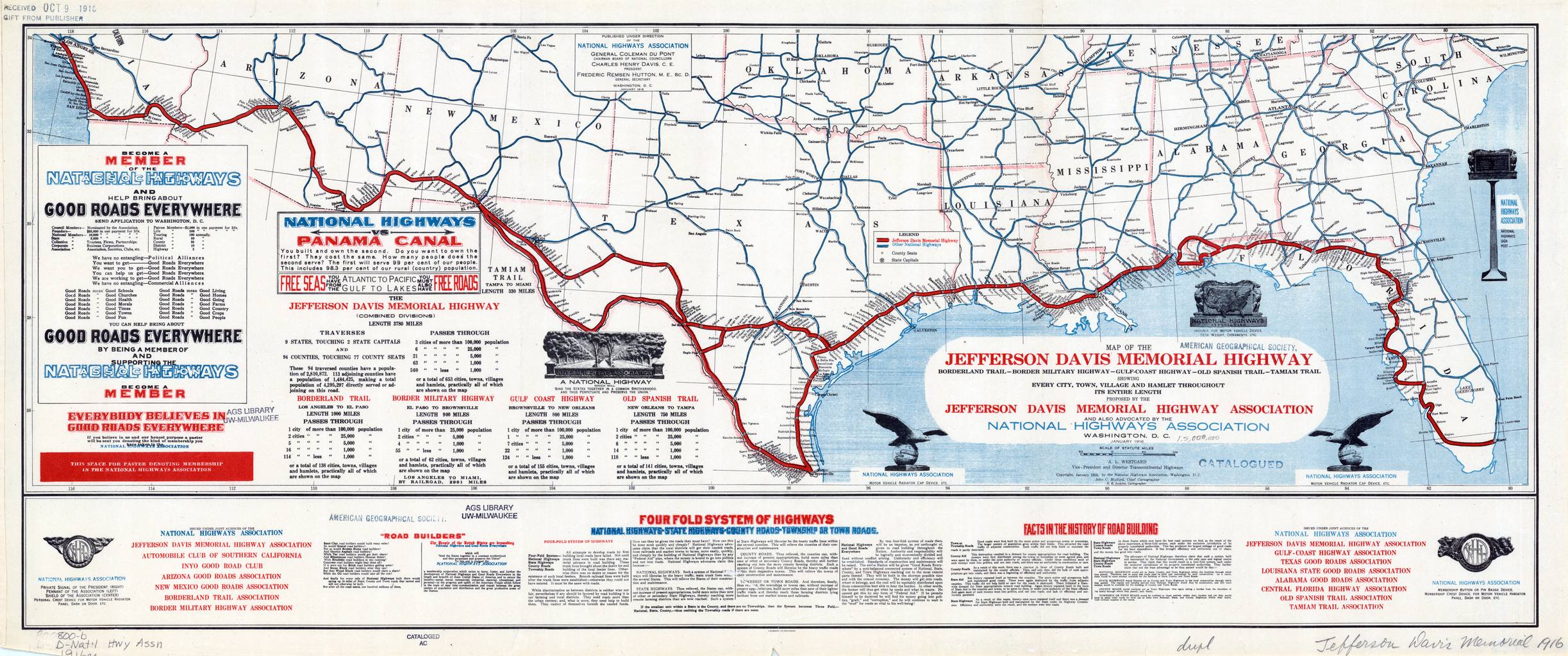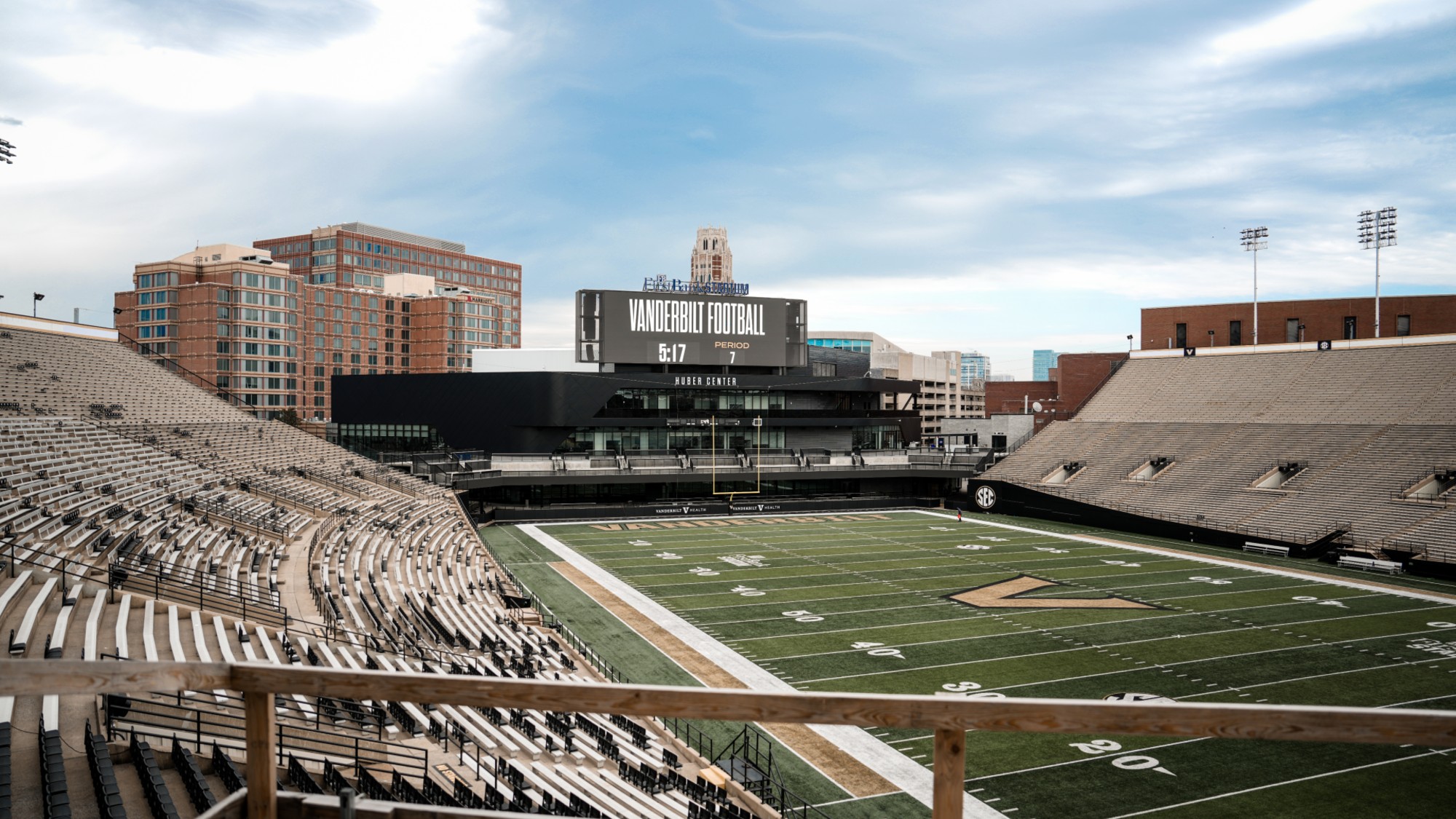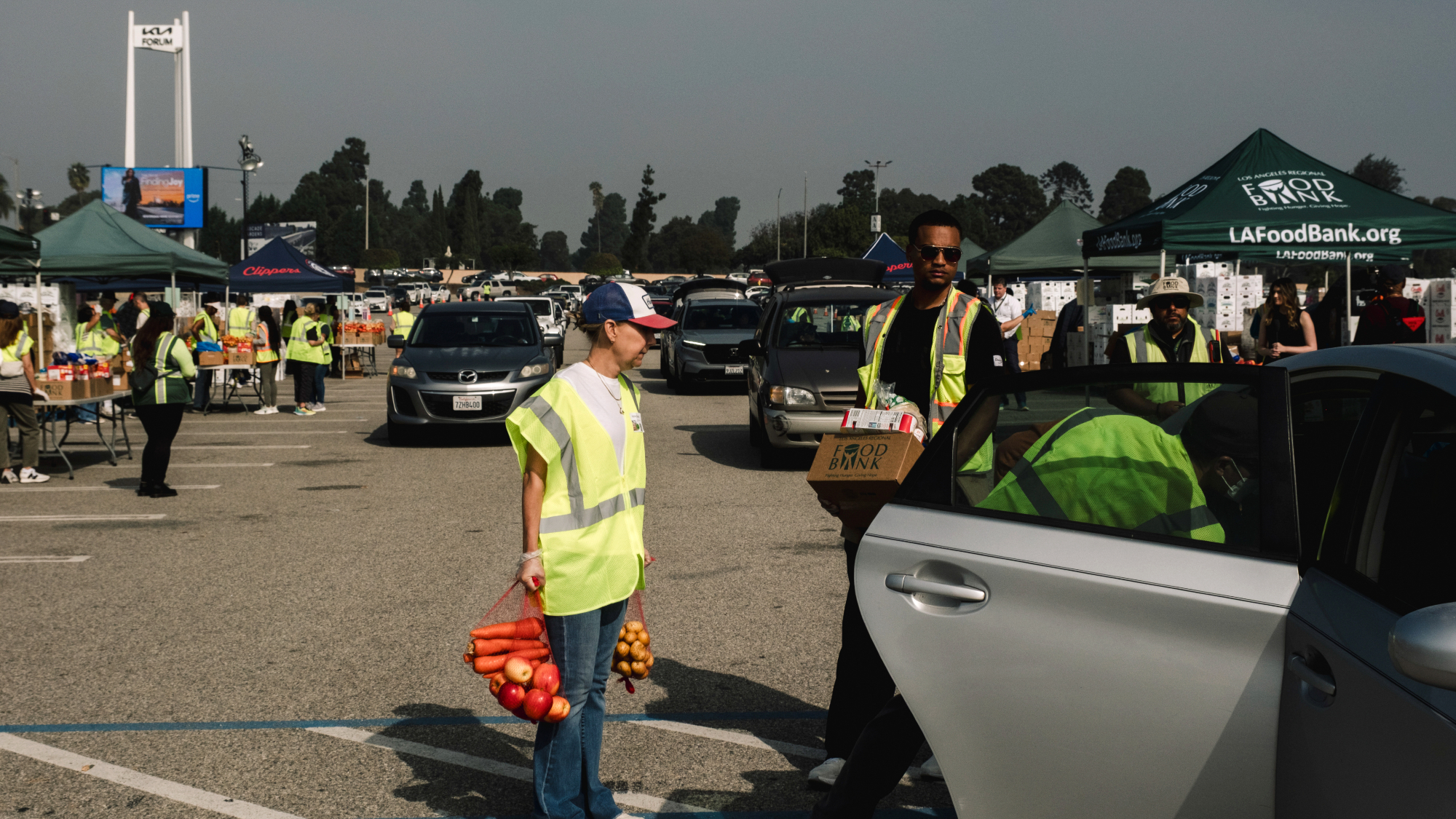Historian explains why there are Jefferson Davis Highways even in the most unexpected states


With the effort to remove Confederate monuments back on the national stage after violence erupted in Charlottesville, Virginia, last weekend, historian Erin Blakemore took to Twitter to discuss the Jefferson Davis Highway, an effort by the United Daughters of the Confederacy (UDC) to "memorialize their version of history" in the 1910s and 1920s. While the grand vision of a cross-country superhighway was never realized, the highway was constructed in bits and pieces, leading to many so-called Jefferson Davis Highways that have lasted into the 21st century.

(University of Wisconsin-Milwaukee/Library of Congress)
"Since there was no federal highway system [in the early 1900s], states often relied on public support — sometimes from interest groups — for road [funding]," Blakemore explains. "And the Lincoln Highway — named after the great emancipator — infuriated members of the UDC. They decided to build a Southern analog. Their vision was just as grand. It would stretch from Arlington, Virginia, to San Diego, California, and spread the Lost Cause vision of the South."
The Week
Escape your echo chamber. Get the facts behind the news, plus analysis from multiple perspectives.

Sign up for The Week's Free Newsletters
From our morning news briefing to a weekly Good News Newsletter, get the best of The Week delivered directly to your inbox.
From our morning news briefing to a weekly Good News Newsletter, get the best of The Week delivered directly to your inbox.
Blakemore added: "Imagine how tempting it would have been for a county, city, or state to be presented with ample funding for a highway with the only caveat being that it was named after the man who symbolized the Confederacy and the UDC's vision of heroic white supremacy."
By the 1920s, the government had started numbering highways and it "was not enthused" by the idea of naming one after Jefferson Davis. "But states could do whatever they wanted!" Blakemore writes. "So highways named after Jefferson Davis — and the markers that went along with them — remained. This is how you got memorials to the Confederacy in surprising places like San Diego."
Markers that remain today have become targets after Charlottesville: One monument in Arizona was covered in what was likely tar Thursday. Rep. Reginald Bolding (D-Ariz.) said that while he is working to change the highway's name, "vandalizing these monuments is not productive," 12 News reports.
Read Blakemore's full thread below. Jeva Lange
A free daily email with the biggest news stories of the day – and the best features from TheWeek.com
Jeva Lange was the executive editor at TheWeek.com. She formerly served as The Week's deputy editor and culture critic. She is also a contributor to Screen Slate, and her writing has appeared in The New York Daily News, The Awl, Vice, and Gothamist, among other publications. Jeva lives in New York City. Follow her on Twitter.
-
 ‘We feel closer to their struggles and successes’
‘We feel closer to their struggles and successes’Instant Opinion Opinion, comment and editorials of the day
-
 SNAP aid uncertain amid court rulings, politics
SNAP aid uncertain amid court rulings, politicsSpeed Read Funding for additional SNAP benefits ran out over the weekend
-
 The 5 best political thriller series of the 21st century
The 5 best political thriller series of the 21st centuryThe Week Recommends Viewers can binge on most anything, including espionage and the formation of parliamentary coalitions
-
 Nobody seems surprised Wagner's Prigozhin died under suspicious circumstances
Nobody seems surprised Wagner's Prigozhin died under suspicious circumstancesSpeed Read
-
 Western mountain climbers allegedly left Pakistani porter to die on K2
Western mountain climbers allegedly left Pakistani porter to die on K2Speed Read
-
 'Circular saw blades' divide controversial Rio Grande buoys installed by Texas governor
'Circular saw blades' divide controversial Rio Grande buoys installed by Texas governorSpeed Read
-
 Los Angeles city workers stage 1-day walkout over labor conditions
Los Angeles city workers stage 1-day walkout over labor conditionsSpeed Read
-
 Mega Millions jackpot climbs to an estimated $1.55 billion
Mega Millions jackpot climbs to an estimated $1.55 billionSpeed Read
-
 Bangladesh dealing with worst dengue fever outbreak on record
Bangladesh dealing with worst dengue fever outbreak on recordSpeed Read
-
 Glacial outburst flooding in Juneau destroys homes
Glacial outburst flooding in Juneau destroys homesSpeed Read
-
 Scotland seeking 'monster hunters' to search for fabled Loch Ness creature
Scotland seeking 'monster hunters' to search for fabled Loch Ness creatureSpeed Read
